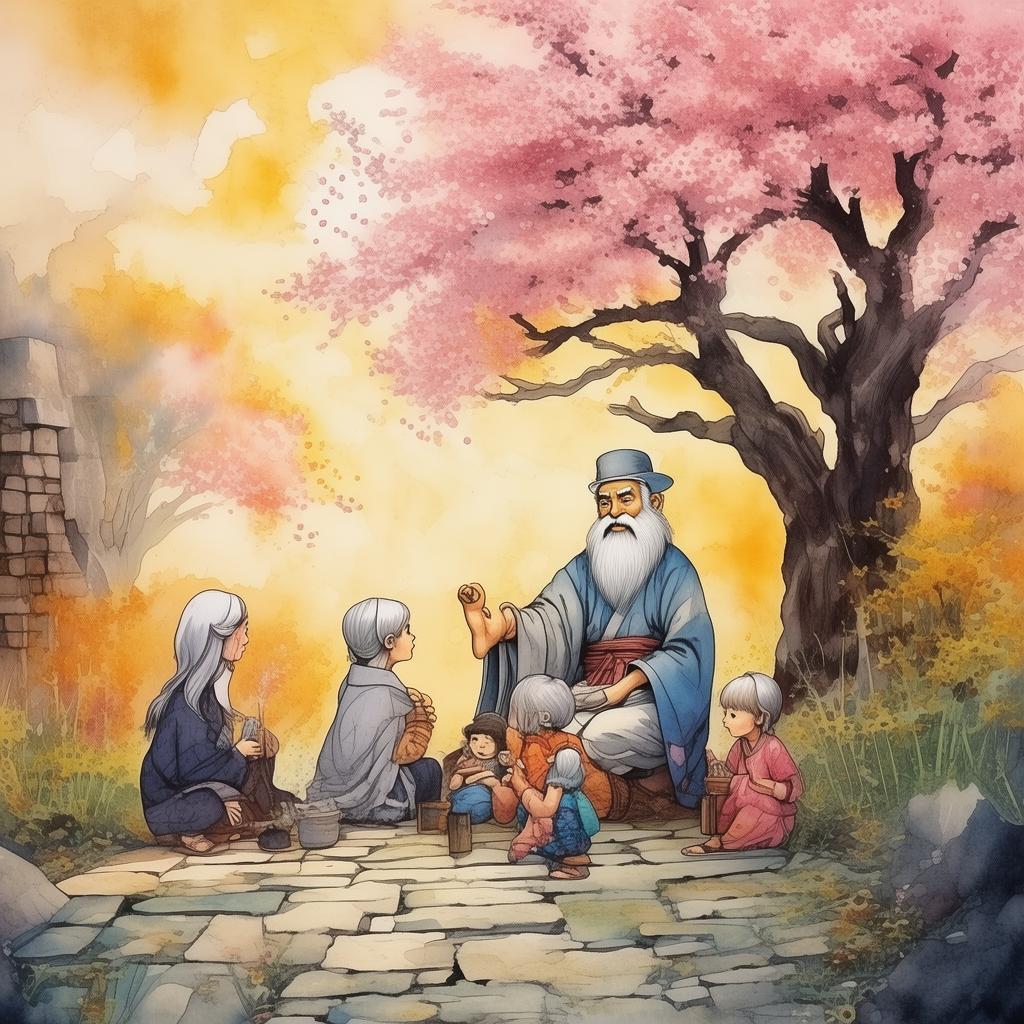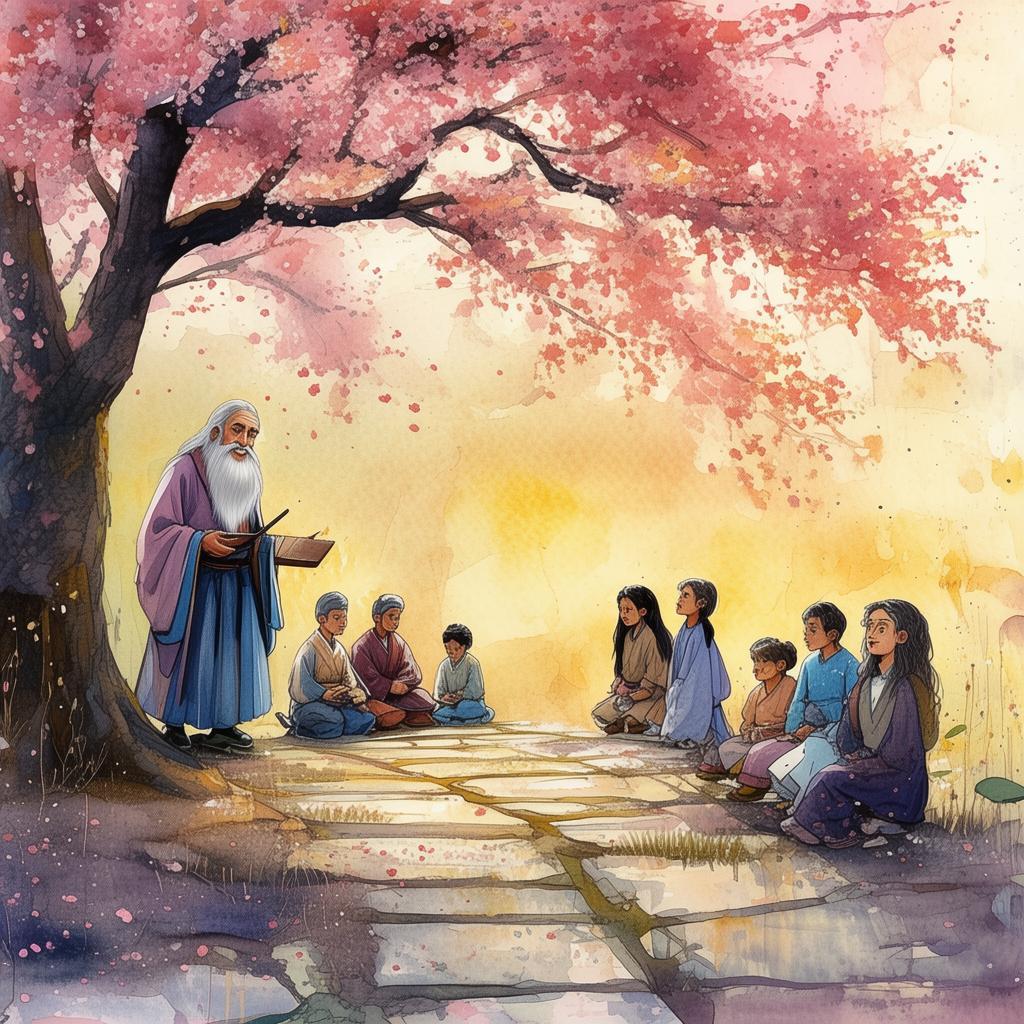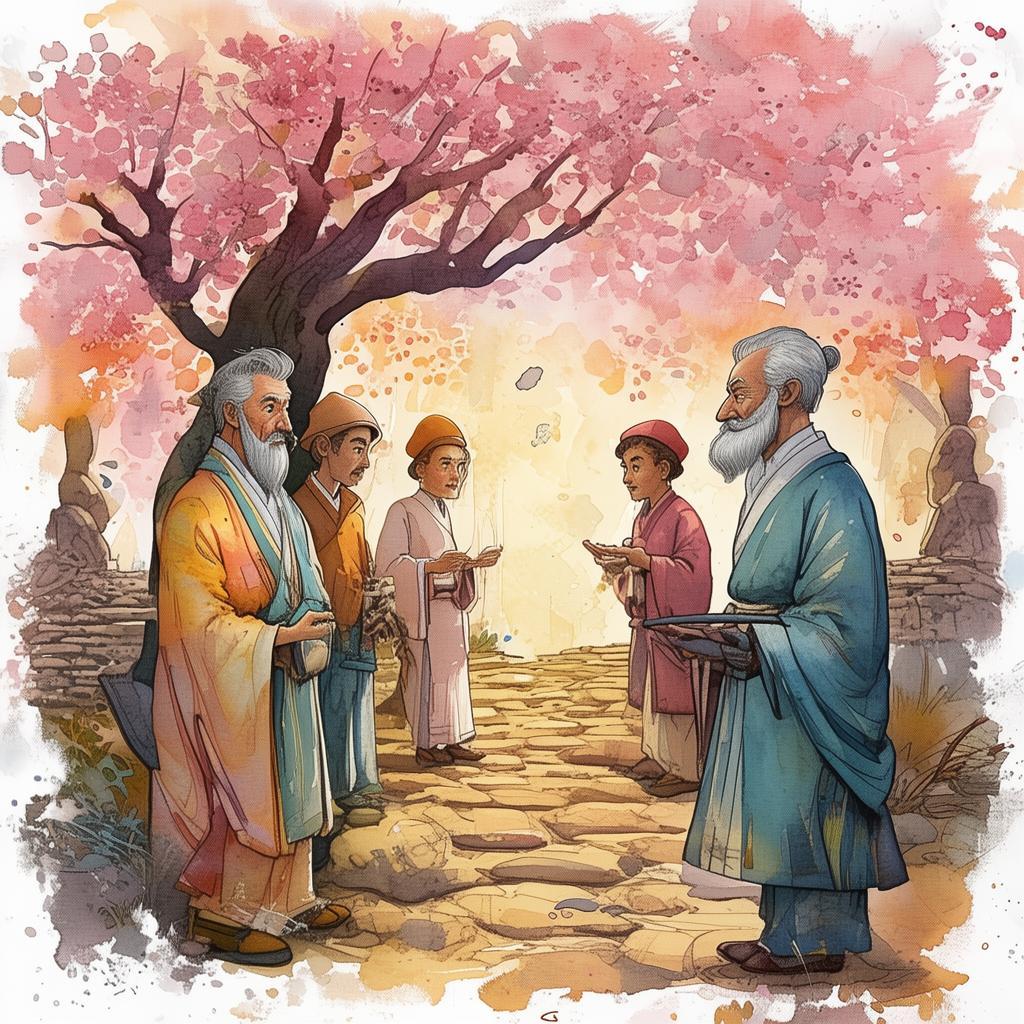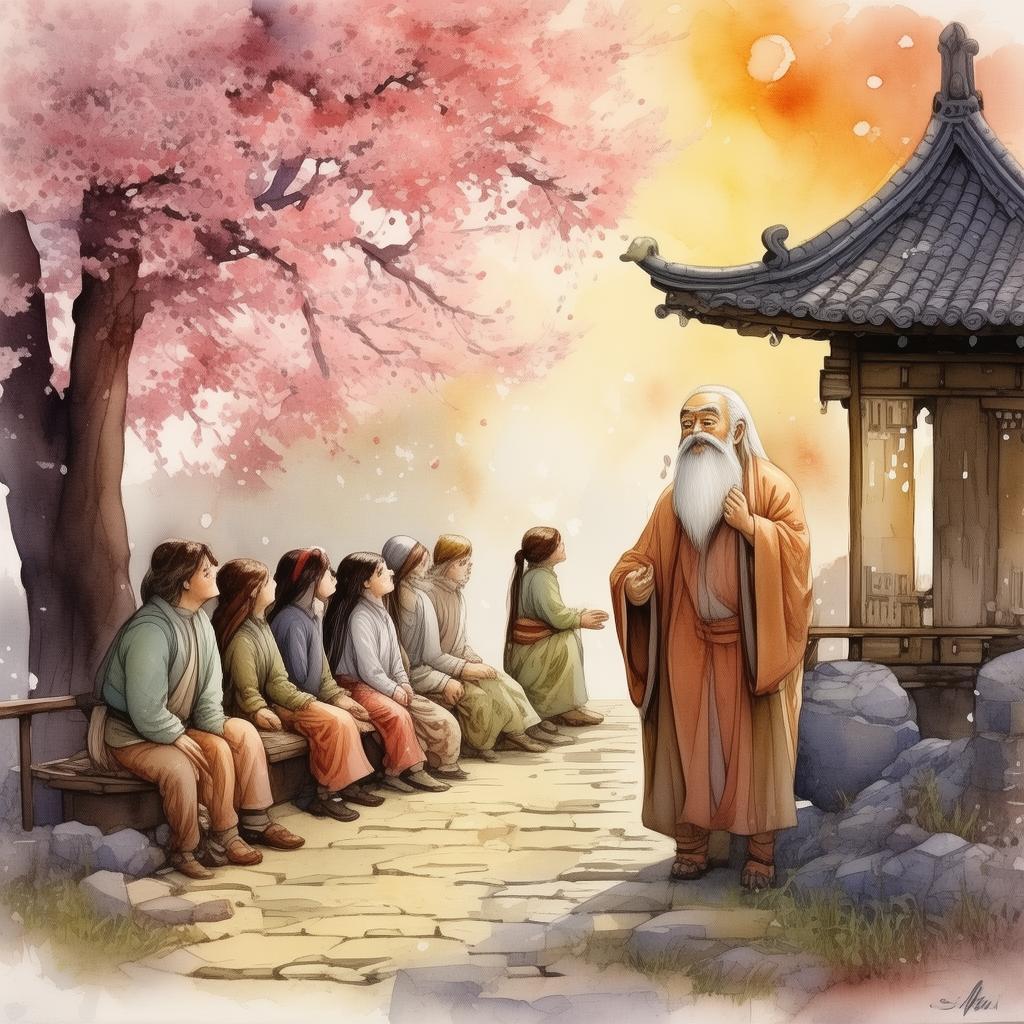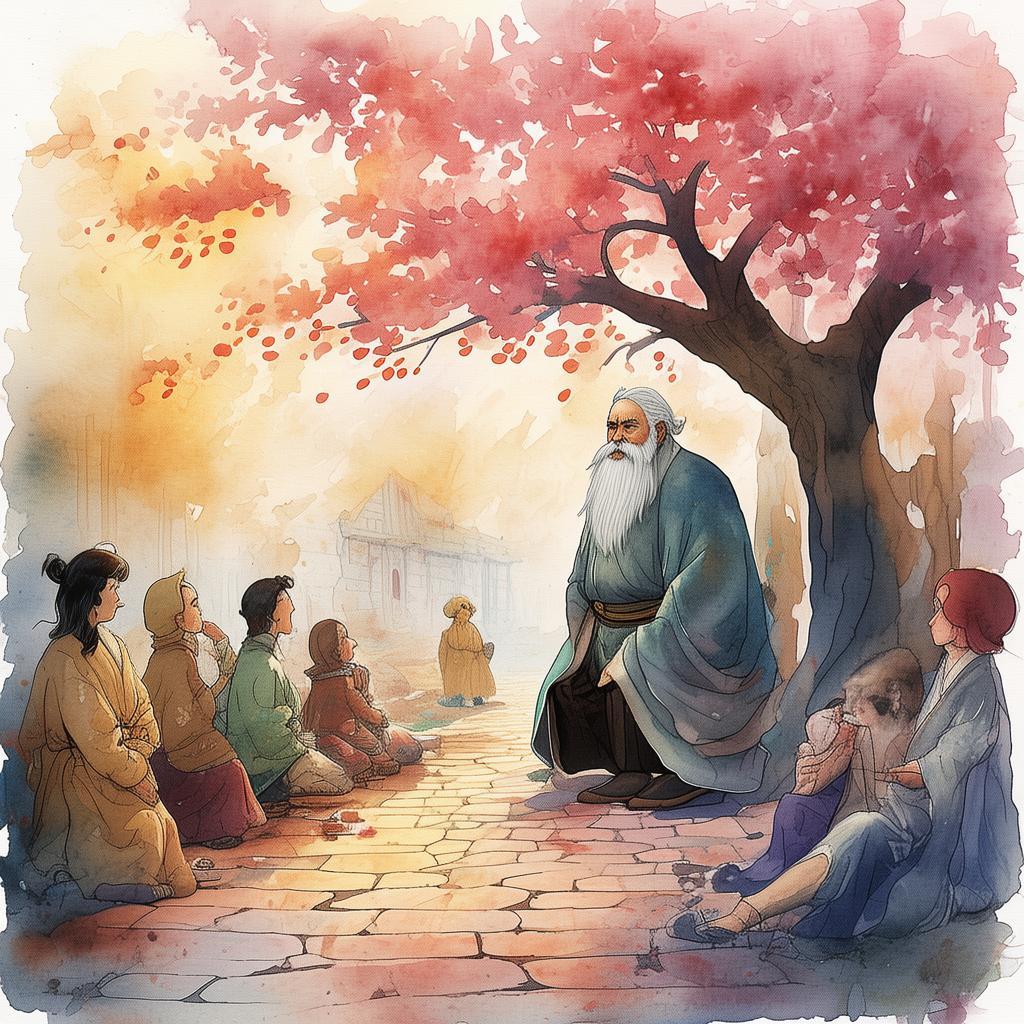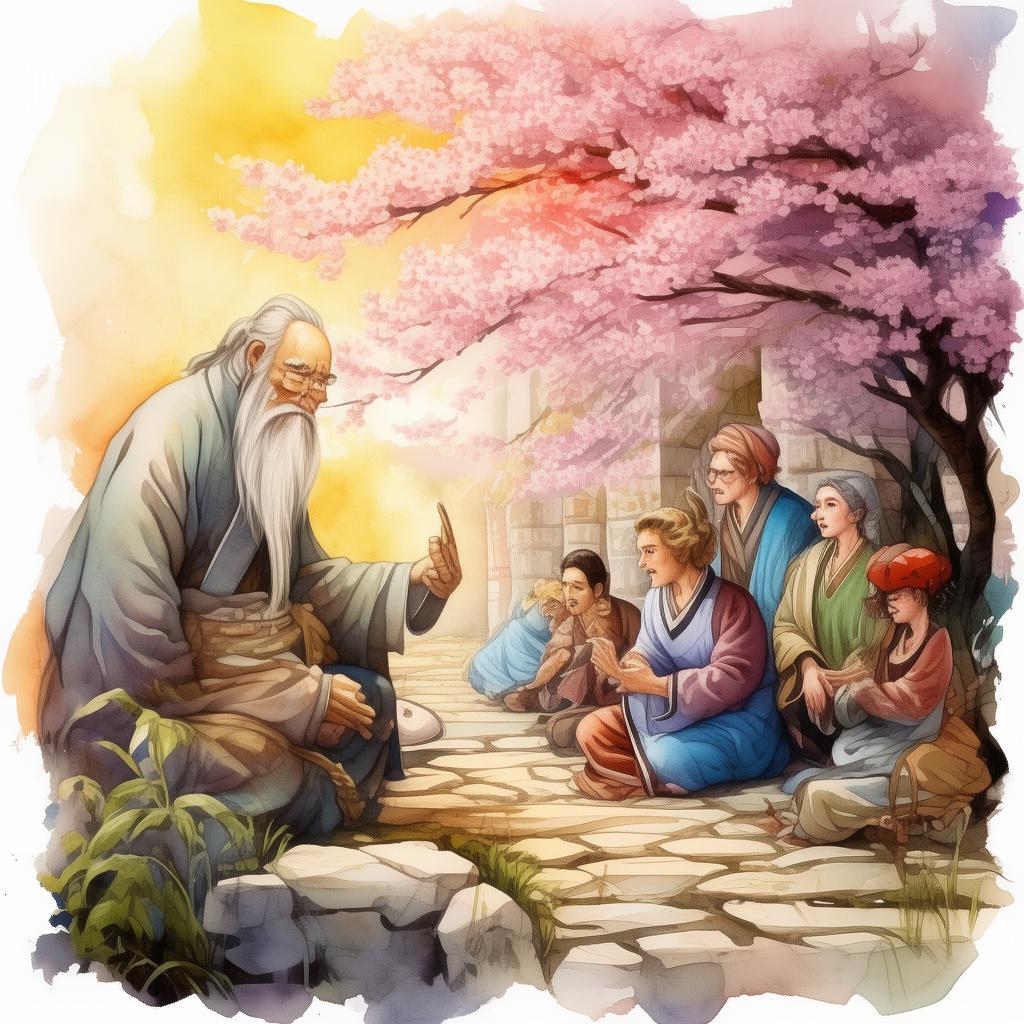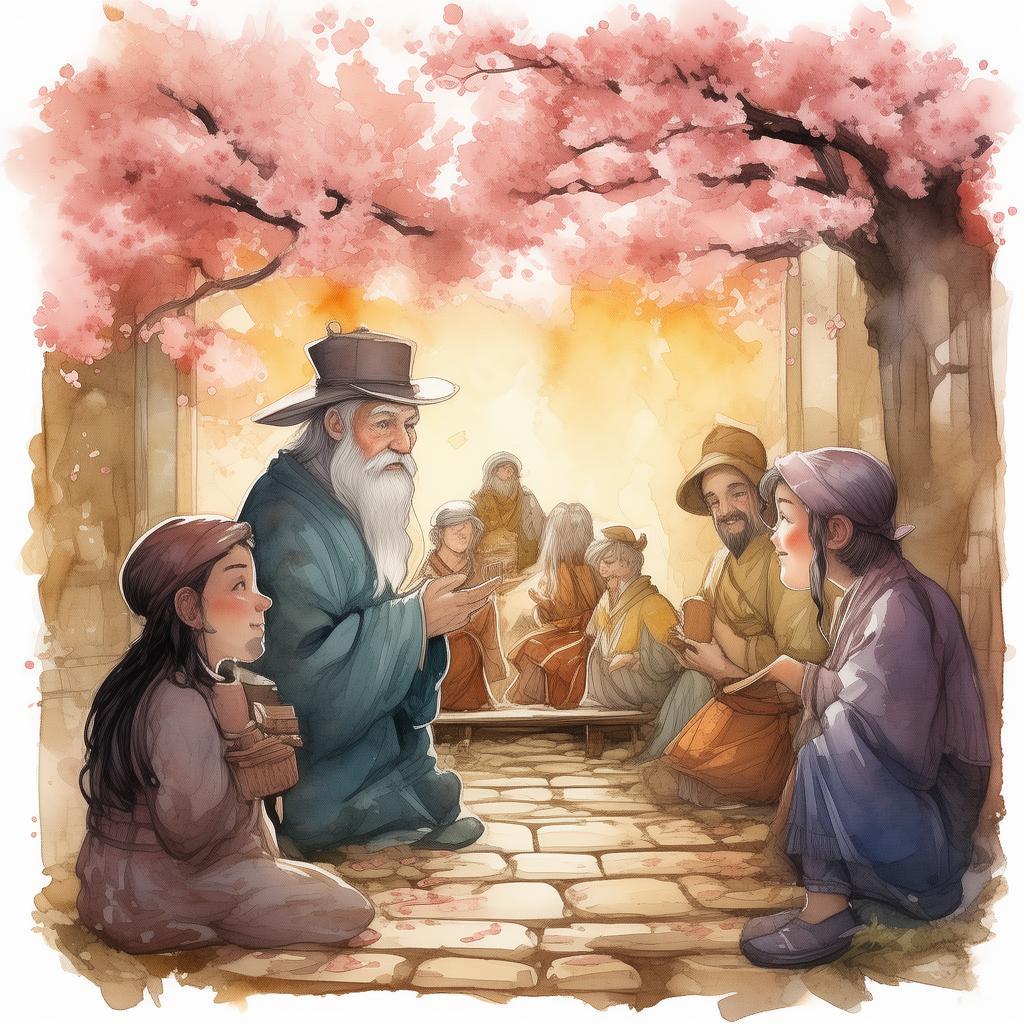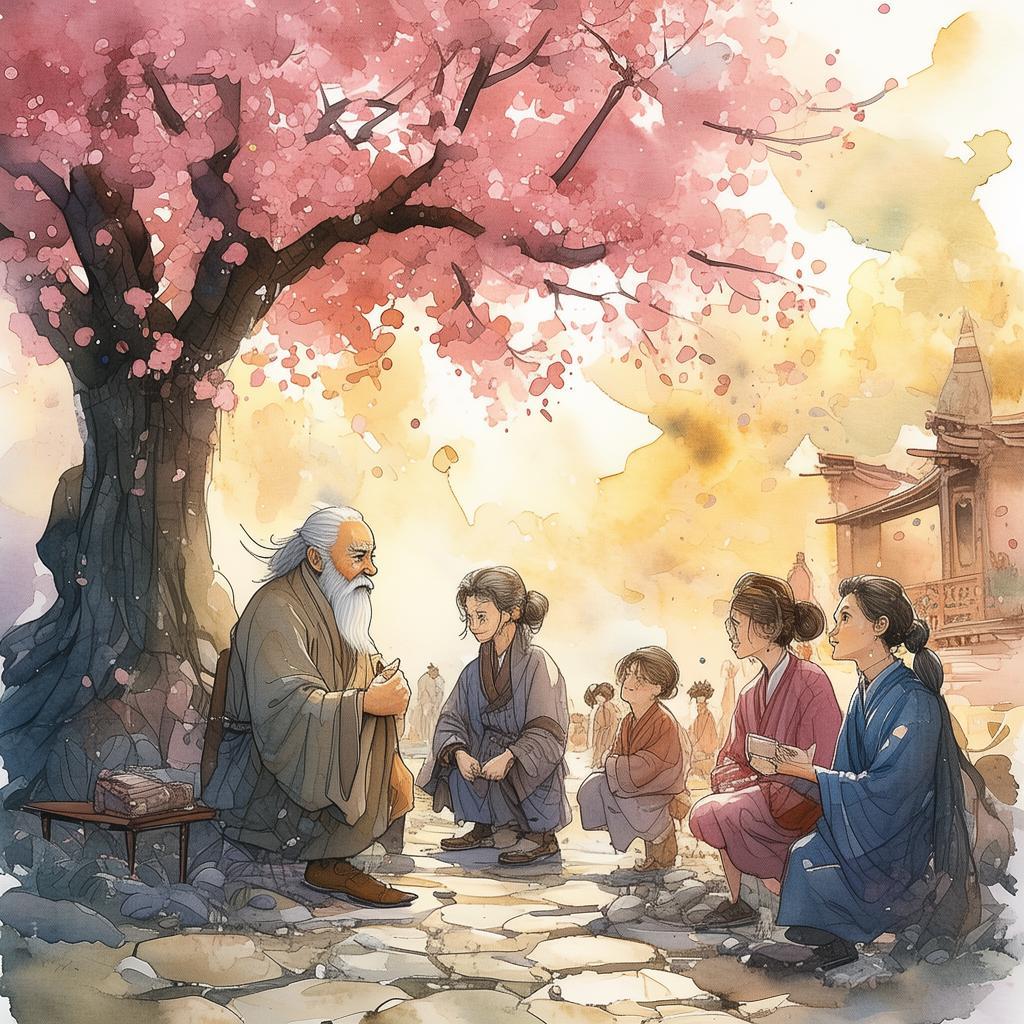The Pen of Deceit: The Story of the Dishonest Poet
In the bustling court of a far-off kingdom, where the whispers of power and the echoes of ambition were the constant backdrop, there lived a poet whose verses were as renowned as they were enigmatic. His name was Lin, and his reputation was as much for his poetic prowess as for his questionable morals. Known to the courtiers as the Dishonest Poet, Lin's verses were often a reflection of the innermost desires and darkest fears of those who sought his pen.
One evening, as the moon hung low and the stars began their nightly dance, the king summoned Lin to his private chamber. The court was abuzz with rumors that the poet's latest commission was a poem that would either seal the fate of the kingdom or bring about its downfall. The king, a man known for his discerning taste and sharp wit, had heard of Lin's penchant for the dramatic and was eager to see what the Dishonest Poet would conjure.
The poem, titled "The Shadow of Doubt," was a masterful piece of work, weaving together threads of intrigue, fear, and deceit. It spoke of a shadow that loomed over the kingdom, a symbol of the king's enemies plotting in the shadows, waiting for the opportune moment to strike. The king was so impressed by the poem that he decided to have it recited at the next court ball, hoping it would unite the people against a common foe.
However, as the night of the ball approached, the court was gripped by a sense of foreboding. The king, feeling the weight of the poem's ominous tone, sought counsel from his most trusted advisor, the wise and old Grand Minister. The minister, sensing something amiss, decided to investigate the origin of the poem.
Through a series of clever ruses and subtle inquiries, the minister discovered that the poem was not the result of inspiration or divine insight, but rather the handiwork of the Dishonest Poet. He had been paid handsomely by a rival faction within the court to cast a shadow of doubt over the king's rule. The minister realized that Lin's verses were not merely poetry but a weapon, and its wielder was no less dangerous than the shadow it described.
The minister confronted Lin, who, under the guise of his poetic charm, confessed to the deed. He justified his actions by saying that poetry was a mirror to the soul, and that he was only reflecting the truth that lay hidden beneath the surface. The minister, though understanding the poet's perspective, knew that such truth could lead to chaos and bloodshed.

As the night of the ball approached, the minister, with the king's blessing, decided to expose Lin's treachery. At the height of the recitation, as the court was captivated by the poem's dark imagery, the minister stepped forward, his voice firm and clear. "Ladies and gentlemen, the shadow we speak of is not one of the night, but one of our own making. It is the shadow of deceit cast by a man who thought to manipulate the hearts and minds of this great kingdom."
The revelation sent shockwaves through the court. The Dishonest Poet, once the darling of the court, was now a pariah. The king, though deeply disappointed, was grateful to the minister for his foresight and bravery. Lin was banished from the court, his name synonymous with deceit and betrayal.
Years passed, and the tale of the Dishonest Poet became a cautionary fable, a reminder of the power of words and the danger of trust in an untrustworthy world. The kingdom, however, thrived, its people united by a shared understanding of the shadows that could arise from the darkest corners of the human heart.
The story of the Dishonest Poet serves as a testament to the power of words and the importance of truth. It teaches us that while poetry can be a reflection of the deepest fears and desires, it is also a tool that can be wielded with great harm. In the end, the kingdom survived the shadow cast by the Dishonest Poet, but the memory of his treachery remains a stark reminder of the cost of deceit.
✨ Original Statement ✨
All articles published on this website (including but not limited to text, images, videos, and other content) are original or authorized for reposting and are protected by relevant laws. Without the explicit written permission of this website, no individual or organization may copy, modify, repost, or use the content for commercial purposes.
If you need to quote or cooperate, please contact this site for authorization. We reserve the right to pursue legal responsibility for any unauthorized use.
Hereby declared.
